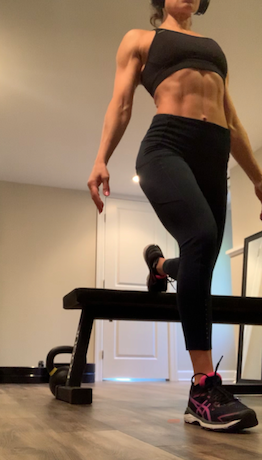So many of my clients come to me with a handful of the same goals. Some want to lose 10-15 pounds so they can feel better in their skin. Others are frustrated that they can’t seem to put on muscle, no matter how many sets and reps they push out at the gym. Some clients come frustrated that they can’t get control of their eating habits. Usually when clients come to me, they are eager and desperate to start! They want to do EVERYTHING and ANYTHING to reach their goals. They ask me if they should count macros, track their food, practice intermittent fasting, carb cycle or just take carbs out of their life once and for all! But that is never, ever…ever the first (or second) step.
So what is the first step to reaching your goals? The first step is humbling. It may even be boring.
The first step to any nutrition plan should always be awareness. After all, how can you change something you are not aware of? Yes, that’s right. Pay attention to what you are eating, drinking, and your habits around food. In order to make small habit shifts that will lead to big changes down the line, you must recognize what is and isn’t working.
Perhaps when and what you’re eating is super inconsistent. Some days you eat breakfast, other days you miss both breakfast and lunch and find you are ravenous at dinnertime. You practice intermittent fasting Monday through Friday, but on the weekend you have a 24 hour eating window. You’re hydrating based on your Stanley, but when you forget your trusted 40-ounce tumbler at home, you don’t drink a drop of water the rest of the day. If all these little inconsistencies sound exhausting, think of how your body feels. These bad habits can lead to a disrupted metabolism, blood sugar instability, nutrient deficiencies and increase your risk of overeating. Goodbye body goals. Hello frustration!
If you want to build skills to reach your health and body goals, you also need to focus on HOW you are eating. Are you guilty of eating your meals in record time? Do you eat your lunch while staring at a screen or driving from one destination to the other? If Randy Jackson was your coach, you know what he would say about that.

Studies show that eating slowly can result in lower calorie consumption during meals, since you are more likely to recognize and feel your body’s satiety cues. Eating slowly can help you feel satisfied well before you have over consumed, gradually leading to weight loss or maintenence.
When embarking on a new (or revisited) body goal, begin by cultivating awareness. Commit to this practice for two weeks, attentively observing your eating habits and identifying any actions that may require adjustment. Keep in mind that this is a journey, not a race. Take the time to establish a solid foundation to pave the way for a smoother road ahead.
Your Health & Wellness Fix,
Carole J. Carus

